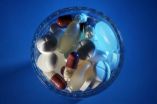(Press-News.org) Faleh Tamimi, a professor in McGill's School of Dentistry, is the leader of a research team that has just discovered that melatonin supplements make bones stronger in elderly rats and therefore, potentially, in elderly humans too. "Old rats are tedious to work with because they get sick a lot and that means they also cost a lot more. But if you're interested in diseases like osteoporosis, they're an essential part of the process."
Dem bones, dem bones, dem dry bones – sleep and bone regulation
The process of bone breakdown and buildup is affected by our circadian rhythms. The cells which break down our bones (known as osteoclasts) are more active at night, while those responsible for bone formation (osteoblasts) are more active during daylight hours. "As we age, we sleep less well, which means that the osteoclasts are more active," says Tamimi. "This tends to speed up the process of bone breakdown."
It is already well established that melatonin plays a role in regulating our body clocks and can potentially help us sleep better. So the researchers suspected that a melatonin supplement would help regulate the circadian rhythms of the elderly rats, thus reducing the activity of the osteoclasts and slowing down the process of bone breakdown. And that is exactly what they found.
22-month-old rats are the equivalent of 60-year-old humans
Researchers at the University of Madrid, where the rats were housed, gave twenty 22-month-old male rats (the equivalent of 60 year-old humans) melatonin supplements diluted in water for 10 weeks (the equivalent of six years in human years). The femurs taken from the elderly rats which had received the melatonin supplements were then compared with those of a control group (which had not received the supplements) using a series of tests to measure bone density and strength.
The researchers found that there was a significant increase in both bone volume and density among the rats that had received melatonin supplements. As a result, it took much more force to break the bones of rats that had taken the melatonin supplements, a finding that suggests to the researchers that melatonin may prove a useful tool in combatting osteoporosis.
For Tamimi and his colleagues the next big question is whether melatonin is preventing or actually reversing the process of bone breakdown. "Until there is more research as well as clinical trials to determine how exactly the melatonin is working, we can't recommend that people with osteoporosis go ahead and simply take melatonin supplements," says Tamimi. "I am applying for funding to pursue the research and we hope to have answers soon."
INFORMATION:
To read the full article in Rejuvenation Research: http://online.liebertpub.com/doi/abs/10.1089/rej.2013.1542
To contact the researcher directly: Faleh.Tamimi@mcgill.ca
Melatonin makes old bones stronger
Research on elderly rats suggests possible avenue for prevention of osteoporosis
2014-05-27
ELSE PRESS RELEASES FROM THIS DATE:
Intermediaries increase corruption
2014-05-27
This news release is available in Spanish.
In reality, an intermediary participates in many, if not most, cases of corruption. However there has been very scarce empirical evidence that illuminates their role in these situations. This is what a researcher at UC3M has analyzed in collaboration with scientists from Florida State University and Southern Methodist University, in Texas (both in the United States). The results of their study, recently published in Experimental Economics, confirm their suspicions: "Our work showed that the number of persons involved in cases ...
Outgrowing emotional egocentricity
2014-05-27
This news release is available in German. Children are more egocentric than adults. Scientists from the Max Planck Institute for Human Cognitive and Brain Sciences in Leipzig have demonstrated for the first time that children are also worse at putting themselves in other people's emotional shoes. According to the researchers, the supramarginal gyrus region of the brain must be sufficiently developed in children for them to be able to overcome their egocentric take on the world.
When little Philip rejoices at winning the prize in a game, it is almost impossible for ...
People attribute free will to mind, not soul
2014-05-27
PROVIDENCE, R.I. [Brown University] — Across the board, even if they believed in the concept of a soul, people in a new study ascribed free will based on down-to-Earth criteria: Did the actor in question have the capacity to make an intentional and independent choice? The study suggests that while grand metaphysical views of the universe remain common, they have little to do with how people assess each other's behavior.
"I find it relieving to know that whether you believe in a soul or not, or have a religion or not, or an assumption about how the universe works, that ...
HIV can cut and paste in the human genome
2014-05-27
For the first time researchers have succeeded in altering HIV virus particles so that they can simultaneously, as it were, 'cut and paste' in our genome via biological processes. Developed at the Department of Biomedicine at Aarhus University, the technology makes it possible to repair genomes in a new way. It also offers good perspectives for individual treatment of both hereditary diseases and certain viral infections:
"Now we can simultaneously cut out the part of the genome that is broken in sick cells, and patch the gap that arises in the genetic information which ...
'Virtual human' shows that stiff arteries can explain the cause of high blood pressure
2014-05-27
High blood pressure is highly age-related and affects more than 1 billion people worldwide. But doctors can't fully explain the cause of 90 per cent of all cases. A computer model of a "virtual human" suggests that stiff arteries alone are enough to cause high blood pressure.
"Our results suggest that arterial stiffness represents a major therapeutic target. This is contrary to existing models, which typically explain high blood pressure in terms of defective kidney function," says Klas Pettersen, a researcher at the Norwegian University of Life Sciences and first author ...
Why does bacon smell so good? (video)
2014-05-27
WASHINGTON, May 27, 2014 — We all know bacon is delicious, but what is it about cooking bacon that makes it smell so tantalizing? In the American Chemical Society's (ACS') latest Reactions video, the team puts its nose into everyone's favorite breakfast food. We collaborated with the Compound Interest blog to break down the science of that sweet smell. The video is available at http://youtu.be/2P_0HGRWgXw
Subscribe to the series at Reactions YouTube, and follow us on Twitter @ACSreactions to be the first to see our latest videos.
INFORMATION:
The American Chemical ...
Scientists map the worst times of day for people allergic to grass pollen
2014-05-27
Atishoo! Help, there are flowering grasses around, please stay indoors – while your friends enjoy the nice summer weather! Traditionally, people allergic to grass pollen are advised to be aware of high pollen concentrations during the day, and to reduce their outdoor activities during this period.
A new study led by researchers from Aarhus University shows that it is considerably more complicated to avoid grass pollen. Based on a three-year study with intensive measurements at three different locations in Aarhus, they divide the grass pollen season into three periods, ...
Sperm cells are extremely efficient at swimming against a current
2014-05-27
Like salmon traveling upstream to spawn, sperm cells are extremely efficient at swimming against the current, according to research to be published this week.
The discovery, to be published in the journal eLife by researchers at MIT and Cambridge University, may help us to understand how some sperm travel such long distances, through difficult terrain, to reach and fertilize an egg.
Of the hundreds of millions of sperm cells that begin the journey up the oviducts, only a few hardy travelers will ever reach their destination. Not only do the cells have to swim in the ...
Attack is not always the best defense
2014-05-27
Jena (Germany) It is something like the police force of our body: the immune system. It disables intruding pathogens, it dismantles injured tissue and boosts wound healing. In this form of 'self-defense' inflammatory reactions play a decisive role. But sometimes the body's defense mechanism gets out of control and cells or tissues are affected: "Then excessive reactions can occur and illnesses along with them," Prof. Dr. Oliver Werz of the Friedrich Schiller University Jena says. He gives asthma, rheumatism, arteriosclerosis and cancer as examples: "For many of these diseases ...
The secret cargo of mosquitoes
2014-05-27
The parasite Dirofilaria repens is a roundworm that primarily attacks the subcutaneous tissue of dogs and causes lumps in the skin, swelling, and itching. Dogs, cats, foxes, wolves and martens can be infected in addition to dogs. "In humans, 16 cases of human dirofilariosis have been recorded since the year 2000, but the dark figure is definitely higher", says the lead author Katja Silbermayr. Humans, however, are so-called dead end hosts; the parasite does not reproduce in humans and therefore poses no major risk.
Silbermayr is a veterinarian and performs research on ...
LAST 30 PRESS RELEASES:
Study in mice reveals the brain circuits behind why we help others
Online forum to explore how organic carbon amendments can improve soil health while storing carbon
Turning agricultural plastic waste into valuable chemicals with biochar catalysts
Hidden viral networks in soil microplastics may shape the future of sustainable agriculture
Americans don’t just fear driverless cars will crash — they fear mass job losses
Mayo Clinic researchers find combination therapy reduces effects of ‘zombie cells’ in diabetic kidney disease
Preventing breast cancer resistance to CDK4/6 inhibitors using genomic findings
Carbon nanotube fiber ‘textile’ heaters could help industry electrify high-temperature gas heating
Improving your biological age gap is associated with better brain health
Learning makes brain cells work together, not apart
Engineers improve infrared devices using century-old materials
Physicists mathematically create the first ‘ideal glass’
Microbe exposure may not protect against developing allergic disease
Forest damage in Europe to rise by around 20% by 2100 even if warming is limited to 2°C
Rapid population growth helped koala’s recovery from severe genetic bottleneck
CAR-expressing astrocytes target and clear amyloid-β in mouse model of Alzheimer’s disease
Unique Rubisco subunit boosts carbon assimilation in land plants
Climate change will drive increasing forest disturbances across Europe throughout the next century
Enhanced brain cells clear away dementia-related proteins
This odd little plant could help turbocharge crop yields
Flipped chromosomal segments drive natural selection
Whole-genome study of koalas transforms how we understand genetic risk in endangered species
Worcester Polytechnic Institute identifies new tool for predicting Alzheimer’s disease
HSS studies highlight advantages of osseointegration for people with an amputation
Buck Institute launches Healthspan Horizons to turn long-term health data into Actionable healthspan insights
University of Ottawa Heart Institute, the University of Ottawa and McGill University launch ARCHIMEDES to advance health research in Canada
The world’s largest brain research prize awarded for groundbreaking discoveries on how we sense touch and pain
Magnetofluids help to overcome challenges in left atrial appendage occlusion
Brain-clearing cells offer clues to slowing Alzheimer’s disease progression
mRNA therapy restores fertility in genetically infertile mice
[Press-News.org] Melatonin makes old bones strongerResearch on elderly rats suggests possible avenue for prevention of osteoporosis






